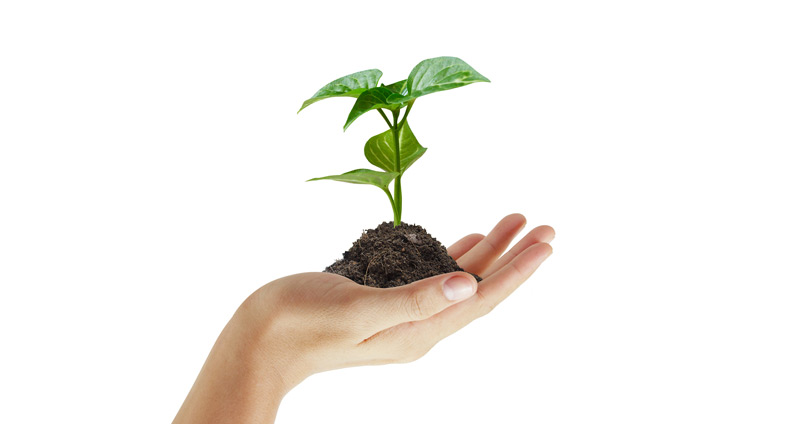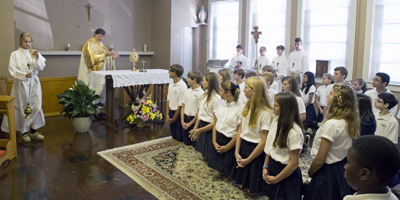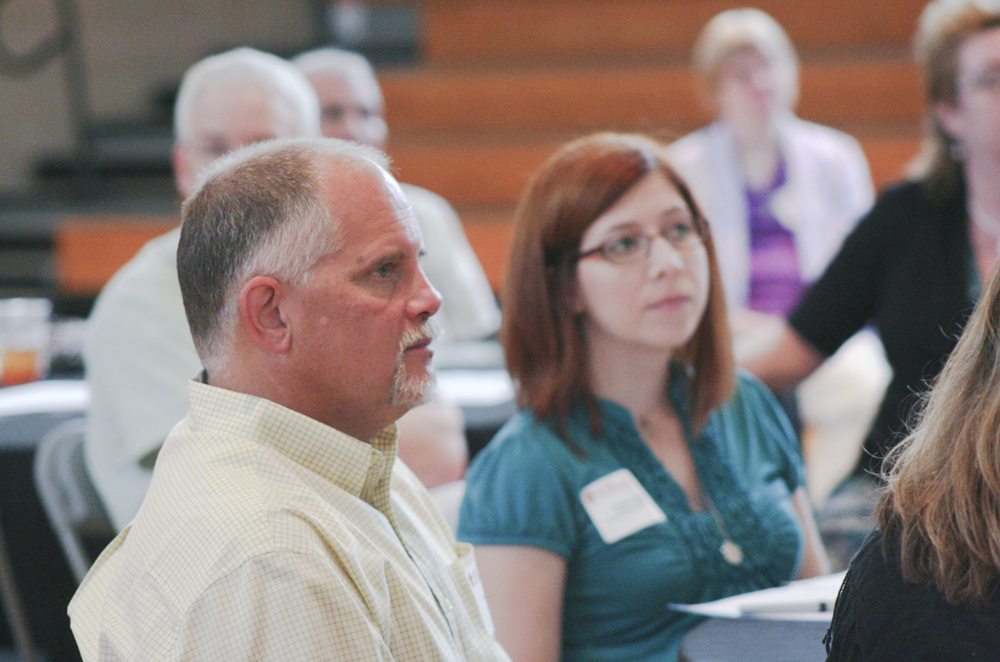
When it comes to protecting our common home, as Pope Francis urges all to do, your children could probably teach you a thing or two.
In fact, at least two schools in the Diocese of Charleston are so knowledgeable about ways to conserve, protect and restore that they’ve been named Certified Green Steps Schools. They are St. Joseph and St. John Neumann, both in Columbia.
The students have gone far beyond just recycling, said Donna Tate, a K-4 assistant teacher at St. Joseph who’s in charge of their Green Steps program. Children at both schools grow plants in empty yogurt cups to help purify the air, collect rain in barrels to water the garden, and even have a compost pile and worm farm.
“I think the children have had a big impact on their parents,” Tate said. “We’re changing the way of life for the children so they grow up recycling and conserving and it becomes a part of their life.”
The kids have become so savvy about protecting the Earth that parents are sometimes fussed at for wasting electricity, or improper recycling.
“The parents are always saying, ‘Oh, [Susie] told me I left the light on’ or ‘I put a can in the garbage when I wasn’t supposed to,’” Tate said.
But don’t worry, joining the pope’s call to be good stewards is easy enough for everyone to participate.
Architects and contractors are designing and constructing newer buildings, such as the Pastoral Center in Charleston, to do a lot of the work, with materials and built-in safeguards to keep them green. Stephanie Posda, coordinator of the Building and Renovation office, noted some of the items, such as purchasing local supplies, using non-toxic paint, installing sensors for the sinks so water doesn’t run, double-pane windows to protect from heat or cold, occupancy sensors that adjust thermostats when the building is empty, and more.
It also takes each person within the buildings to do their part. Dave Maddox, the new facilities manager at the Pastoral Center, said employees are encouraged to save on water and recycling by using provided tumblers instead of buying bottled water. So far, the “green” water fountains have saved close to 4,000 plastic bottles from being used.
Maddox said he is planning a walk-through of the building to see what is working and what isn’t so he can establish cost-effective, earth-saving measures. For example, current light bulbs will be phased out by LEDs, and a recycling policy will be created for the breakroom.
What is recyclable?
At the office, people should put everything from these categories in their blue bins:
- Metals
- Paper, paperboard, cardboard
- Glass
- All plastics — cups, straws, utensils, plates, etc.
What about Styrofoam?
Styrofoam is tricky because it usually has a recycling symbol on it, but because the process often releases toxins and isn’t cost-effective, few recycling centers accept it. It’s best to avoid it.



